|
As both a transgender woman and an experienced Anglican priest, it is highly disappointing to hear of the recent resolution of the Anglican Synod of Tasmania about what it calls ‘Biological Sex’. This betrays all the faults of what was a very late ‘motion without notice’: being ill-considered, under-informed and divisive, especially in its lack of attention to Anglican and other transgender people’s own well-substantiated experiences of faith and identity. For both Tasmania and the Anglican Communion are blessed with many wonderful transgender people who continue to enrich our communities and bring new life to others. What a difference it then makes when we are listened to and engaged constructively. For my own experience is that, in affirming rather than denying our authentic God-given (not human labelled) gender, transgender people are indeed so much more fully incarnate, at peace and flourishing in our skins, biology and divine purpose. Denying this not only helps maintain unnecessary suffering but restricts the love and joy we have to share within the Church and wider world. After all, St Paul (in 1 Corinthians 12) encouraged the Church, as the Body of Christ, to value its members that are weaker and shamed. This kind of action however feels more like being freshly beaten up and an attempt to cut off transgender members, our families and friends. That is not the message of God’s love that Christians have to offer the world.
The resolution also seems to reflect a recently constructed approach to the Bible which narrows God’s colourful and dynamic kaleidoscope of creation to simplistic black and white binary categories. This does not do justice to how mainstream Anglican theology has typically sought to value the rich and varied textures of the scriptures and the best of evolving human reason. Nor does it sit well with increasingly trans affirming developments in many Anglican dioceses, and other Christian congregations, schools, and agencies across Australia. I hope therefore that Anglican leaders in Tasmania will think again and not encourage their parishes, schools, and other agencies to take such an unhelpful path. The same Synod passed other resolutions making a continuing welcome commitment to addressing environmental challenges and supporting people with disabilities. These are just two of many ways in which Tasmanian Anglicans contribute positively to their communities. What a shame transgender people are not yet regarded as worthy of similar full respect and engagement. For neither trans people nor people of faith benefit from perpetuating today’s unnecessary culture wars, especially those of us who are both. Human beings have genuine differences but, as St Paul also put it, we are called to be one in Christ, in whom ‘there is no longer male and female’. We can be, and do, so much more together. The Revd Dr Josephine Inkpin was ordained in the Church of England in 1986 and has served in many capacities in Anglican dioceses in England and, since 2001, in Australia, as well as an officer of the National Council of Churches in Australia for several years. She is an associate lecturer in the University of Divinity, a member of the global network of Trans and Non-Binary Clergy of the Anglican Communion, and the current Minister of Pitt Street Uniting Church in Sydney.
1 Comment
How do you regard dragonflies? In one of his great poems (As Kingfishers Catch Fire), the poet Gerard Manley Hopkins not only encourages us to be like them, but, in so doing, to be like Christ. Not everyone has always agreed however. In early colonial Australia for example, white fellas tried to kill dragonflies, just as they/we tried to kill so many other life-giving things that they/we did not understand. Those early colonialists saw dragonflies flying around and landing on their valuable horses, and they saw the horses moving and flicking their tails. So they thought the dragonflies were biting and making them crook. The colonialists were making things worse. The dragonflies were actually eating the mosquitoes and the gnats that were troubling the horses. They were life-givers, saviours even, not devils in disguise. In so many positive ways, dragonflies are thus evocative symbols for transgender people today. For, on this Transgender Day of Remembrance, we do well to attend to how bearers of light have been treated as embodiments of darkness. We do well, as our Gospel today (Luke 23.32-43) reminds us, to remember how Jesus was not crucified alone, and how others are also crucified today. And above all, we do well to affirm that it is only in recognising the light, in strange places, that we find salvation and hope for us all…
A Prayer of Blessing for LGBTIQ+ Celebrations
by Josephine Inkpin, written for Sydney Mardi Gras 2022 Kaleidoscopic Spirit, You dance among us in a glorious riot of expression, embodying afresh the generous love of Jesus, and all who have embraced love at the heart of being. Bless all who gather at this time to celebrate the gifts of sexual and gender diversity. As you have inexhaustible pride in your rainbow children so may we have such life-bearing strength in ourselves and in one another. Touch our lives and bodies with your transforming Love, shining light where there has been darkness, bringing healing where there has been hurt, and making visible what has hitherto been invisible. Inspire us to deeper intimacy and interconnection, opening up the closets of all that remains damagingly repressed, and leading us along fresh pathways of hope to a more joyous and glittering future for us all.  ‘The Body doesn’t lie’, they say. Well, certainly it can powerfully reveal and prompt us to the truth. Years ago, for example, I remember a yoga teacher asking me to curl up into the foetal position and give myself a hug, expressing my love for myself. But I simply couldn’t manage it. I took up position, but my arms just wouldn’t do it. Even when I actively exercised my mind to give myself the appearance of a hug, my body would not obey. For you cannot simply command love. It has to be received, acknowledged, and embodied. Or, to put it another way, love has to be breathed in and breathed out. All of this takes us to the heart of Jesus’ teaching about the commandments (in Mark 12.28-34), and to the core of the Biblical tradition… A beautiful poem which expresses the power of transforming Spirit and hope-bearing Love down the ages and in so many of our lives.
For (too) many years, with others, I've coaxed and cajoled. Sadly though, at this transition point, I’m going to have to say it clearly once more - many ‘affirming’ church leaders truly frustrate me and are major problematic parts of the continuing ‘issues’ that churches and wider society have with sexuality & gender Individually some church leaders can be quite kindly in disposition, as well as otherwise gifted, but as a body they are a key element of the (straight) problem we have, alongside the bigots they refuse to face down publicly. It also sometimes feels like they are stuck in a time warp. For two things stand out...
I've done quite a bit of speaking, teaching, preaching, Zoom conferencing, writing, and other ministry in recent months, but it was particularly lovely today, in our parish marking of the Season of Creation, to be back behind the altar - or (holy) table (depending on your theological outlook). It might have happened earlier but COVID Safe issues have restricted opportunities. It was only afterwards however, reflecting partly on why I was so moved, that I realised something else. This wasn't just the first time I've personally presided at the eucharist after my surgery earlier this year, but it was almost certainly the first time that a post-GRS transgender woman had ever publicly presided at the eucharist in Australia with full canonical order (there are others, treasured by me, who have gone before, but in different ways). Maybe transubstantiation or scholastic ‘real presence’ were not involved, but it was definitely about really present love and substantially transforming - bodily and spiritually breaking open to new creation for all. One more step along the way... 😻🙏🦋
#transinggod #miltonanglican #eucharistisforall A short video reflection for the Trans Day of Visibility (31 March)
Hi, I’m Josephine - an Anglican priest in Brisbane and a transgender woman. Visibility for me is a sacrament of transformation, with three particular aspects to it. First of all, it’s about displaying the glorious diversity of life and creation, particularly in trans people: that we are fearfully and wonderfully made - just like me. Secondly, it’s about dispelling the fear and the shame and the pain that often gender diverse people experience, and that’s through the power of love, beginning with loving ourselves. And thirdly, it’s about dispersing that love, dispersing, giving that light to others so that the darkness of others can dissipate. So may that power of visibility create and redeem and enlighten all people this day, and in the future - a blessing for all. 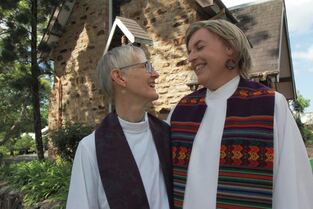 ‘I didn’t marry a gender. I married a person.’ - this has always been a truth of our marriage, before and after Josephine came out as a transgender woman. Just as God ‘looks on the heart’ not ‘outward appearance’ (1 Samuel 16.7), our gender and sexuality are not the core of our lasting relationship. What matters is the love we have for one another, part of God’s greater love. In that way, ‘rainbow marriage’ is also a gift for all... 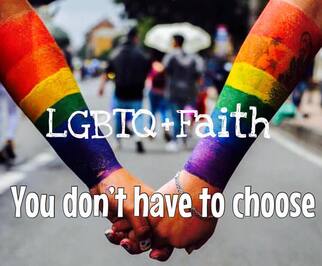 I speak today as both a proud member of our LGBTIQA+ community, and also as a dedicated person of faith, indeed as an Anglican priest. I do so, because people like me are typically erased, our lives and voices ignored. Yet we queer people of faith do exist! - and we are increasingly seeking to be visible. For our very existence gives lie to the monstrous misuse of religion for political ends. We suffer particularly profoundly from religious discrimination. We do not want religious exemptions which hurt us and others, and betray the heart of who we are. We also know that the majority of our fellow Australians of faith agree with us, as we saw in that dreadful postal survey. So we’ve tried to lobby, spoken to Government inquiries, sought to be part of desperately needed change. Yet, as queer people of faith, our rights to religious expression are seldom recognised... |
AuthorThe Revd Dr Jo Inkpin: Archives
March 2024
Categories
All
|
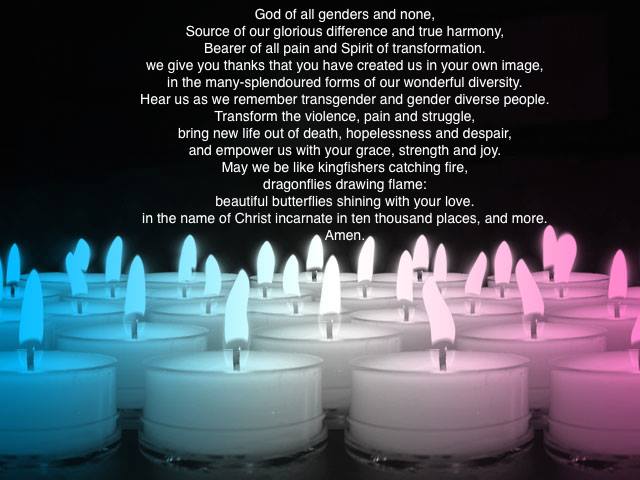
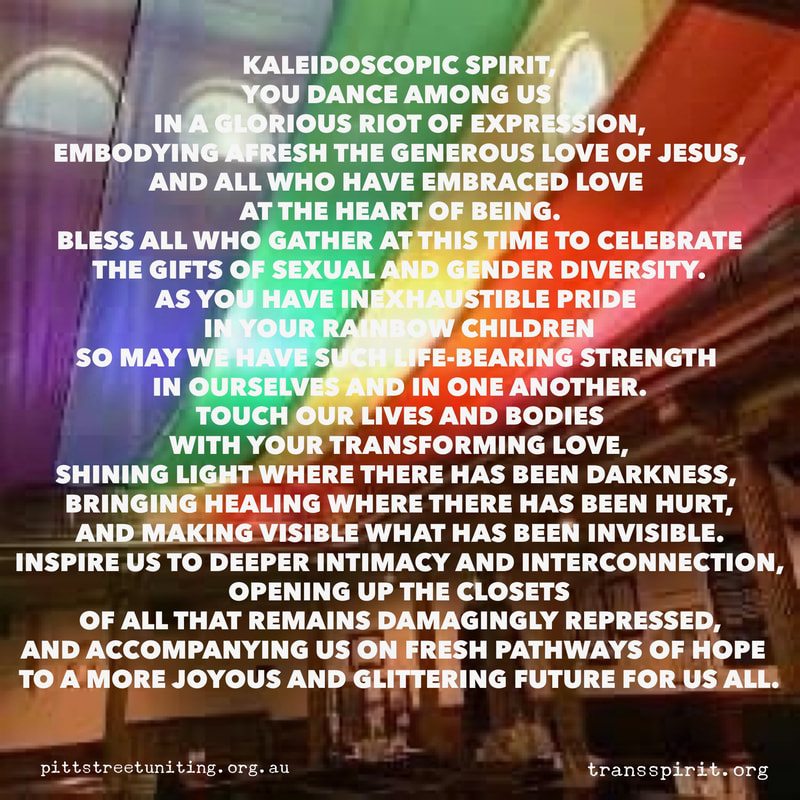
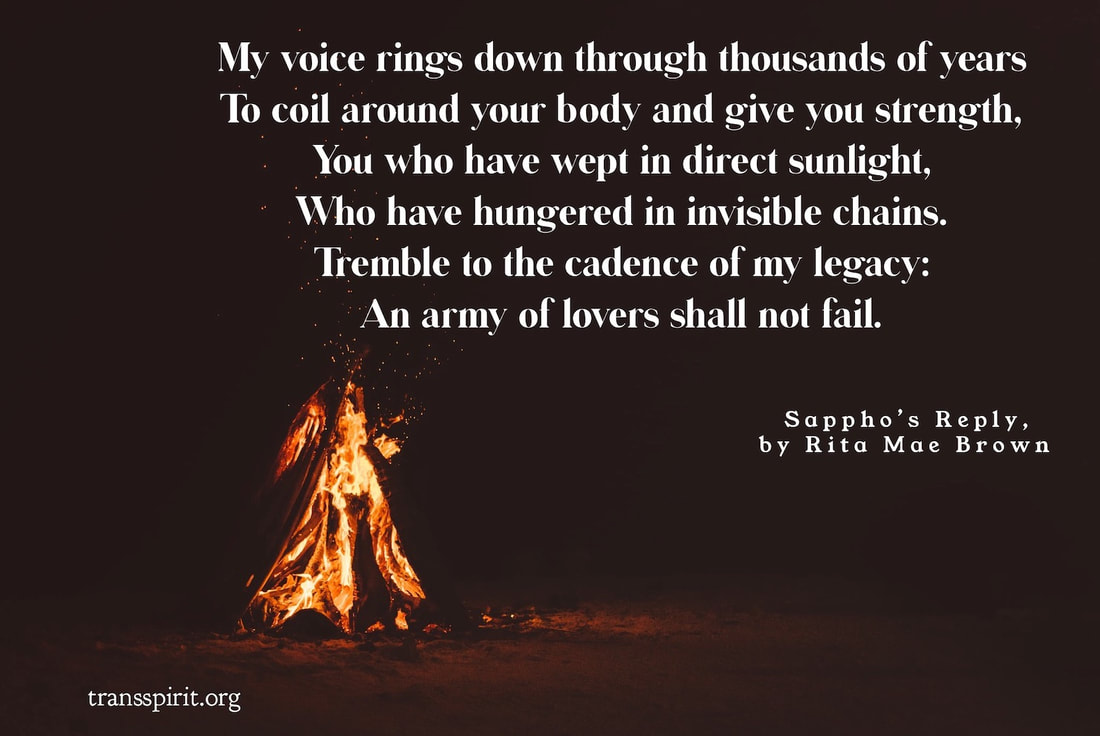
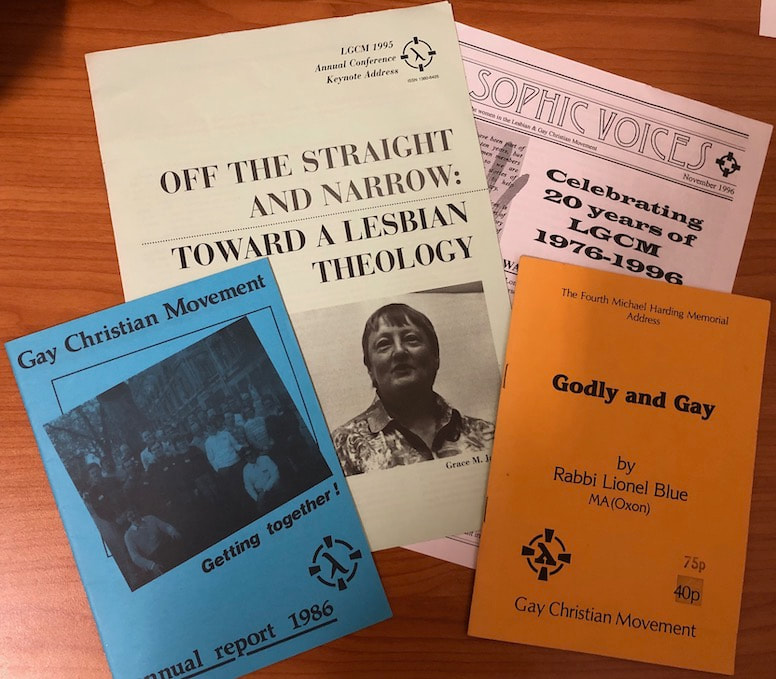
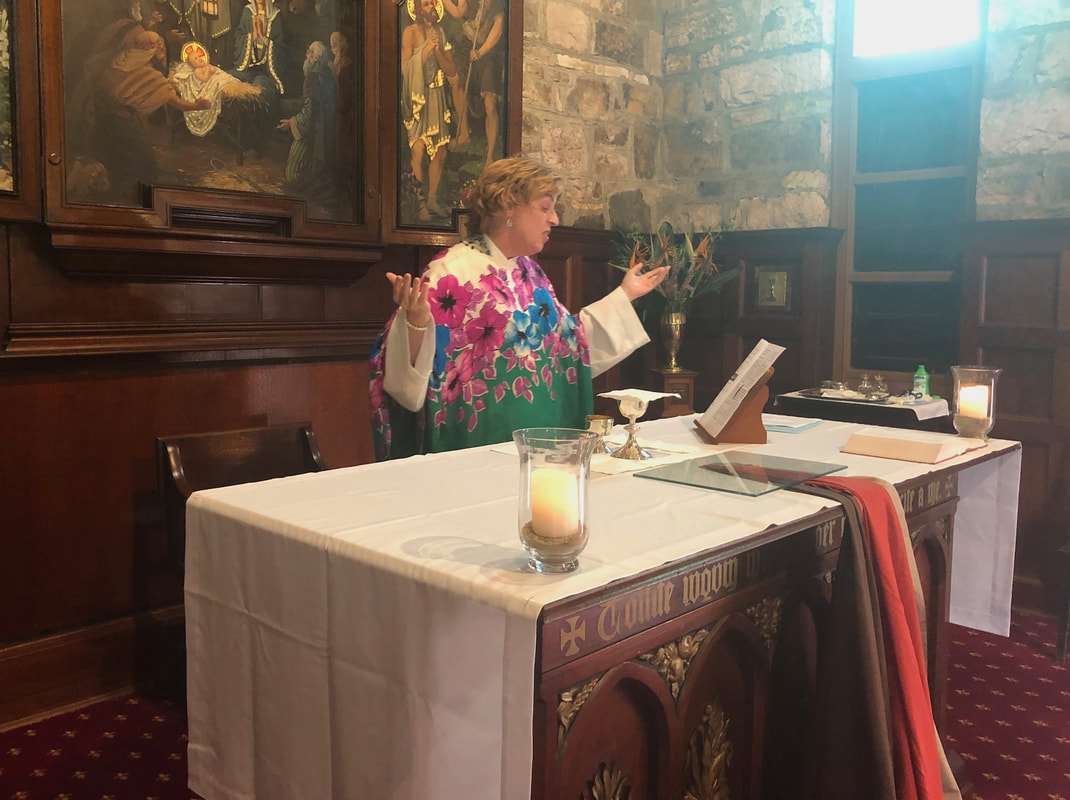
 RSS Feed
RSS Feed